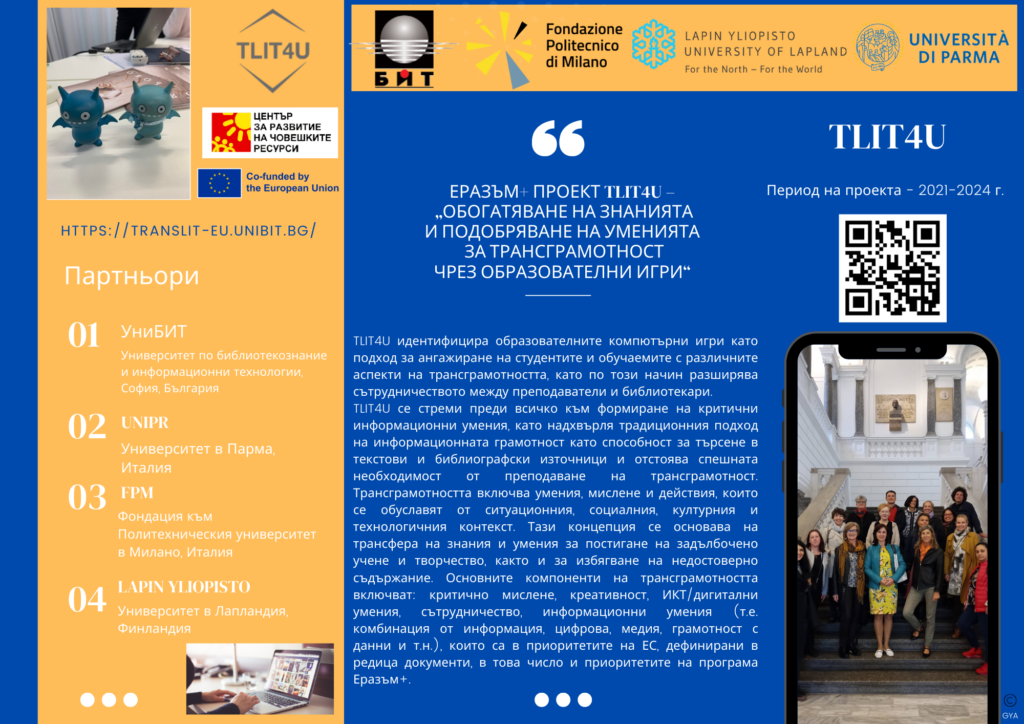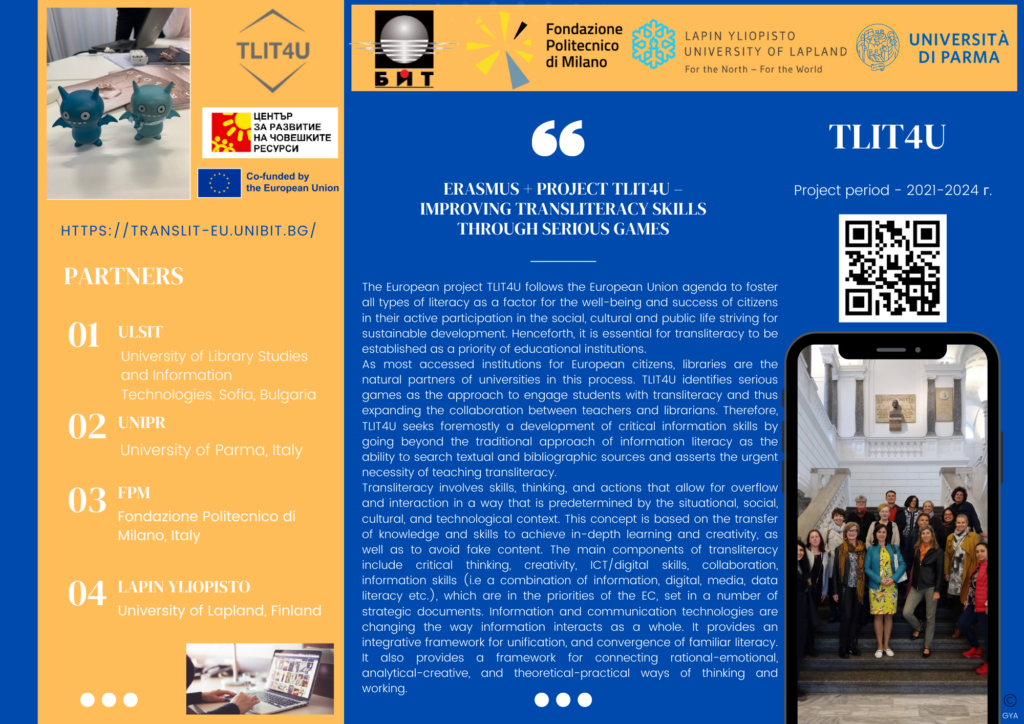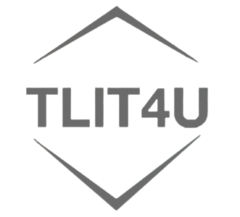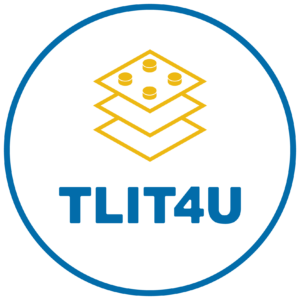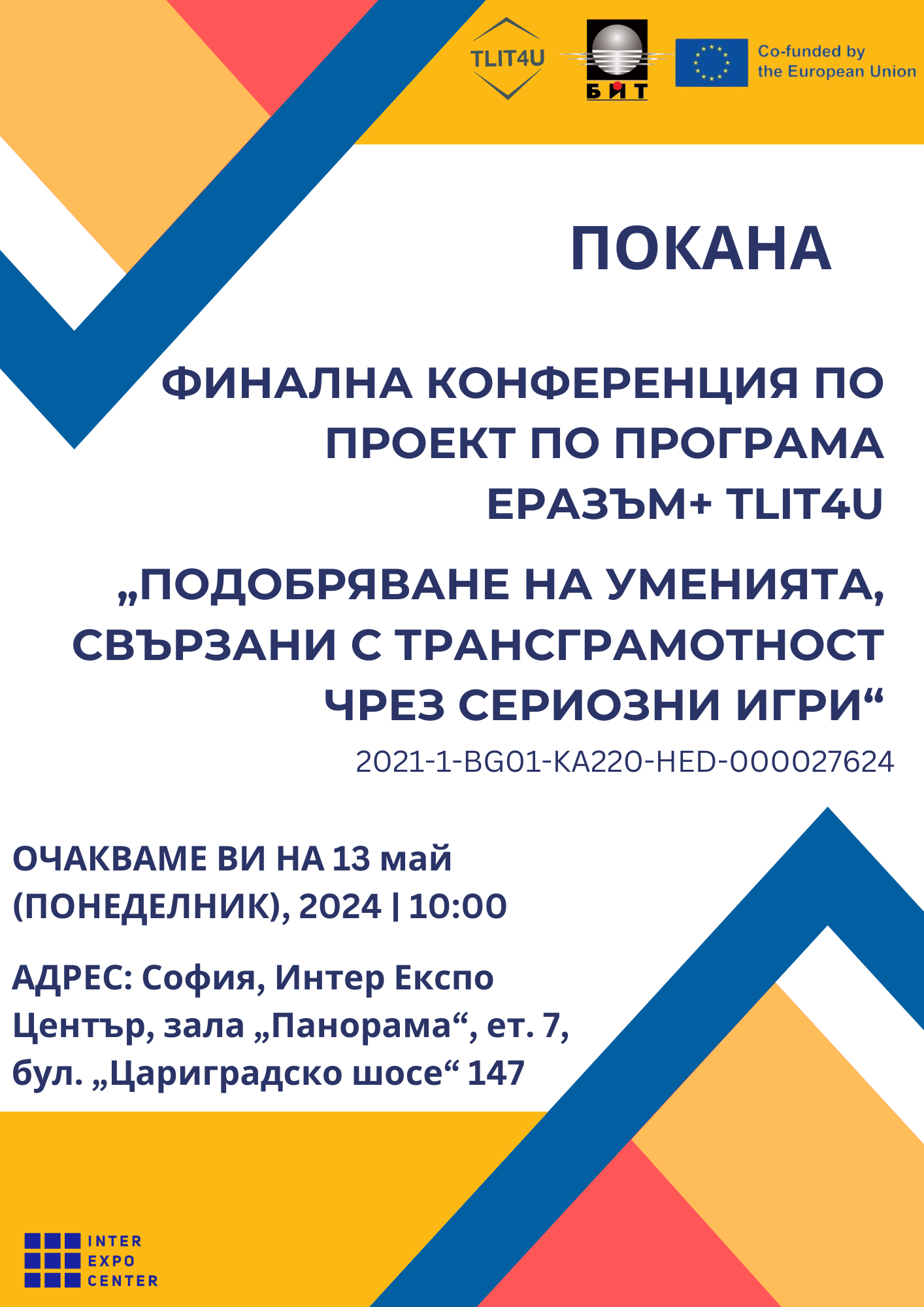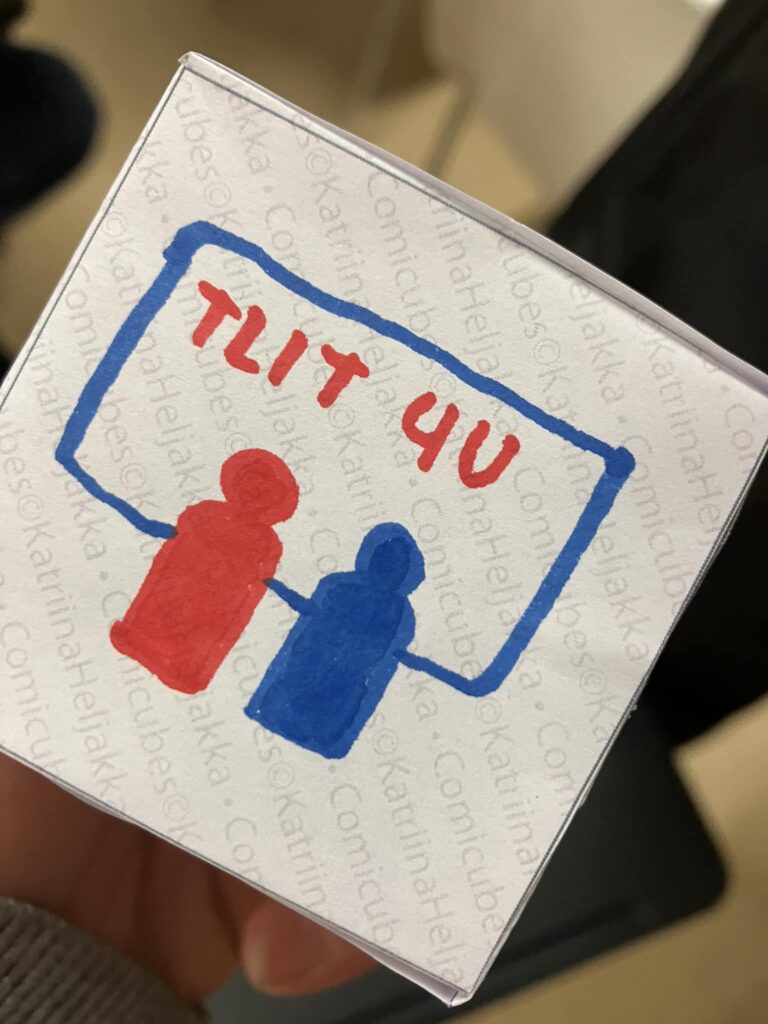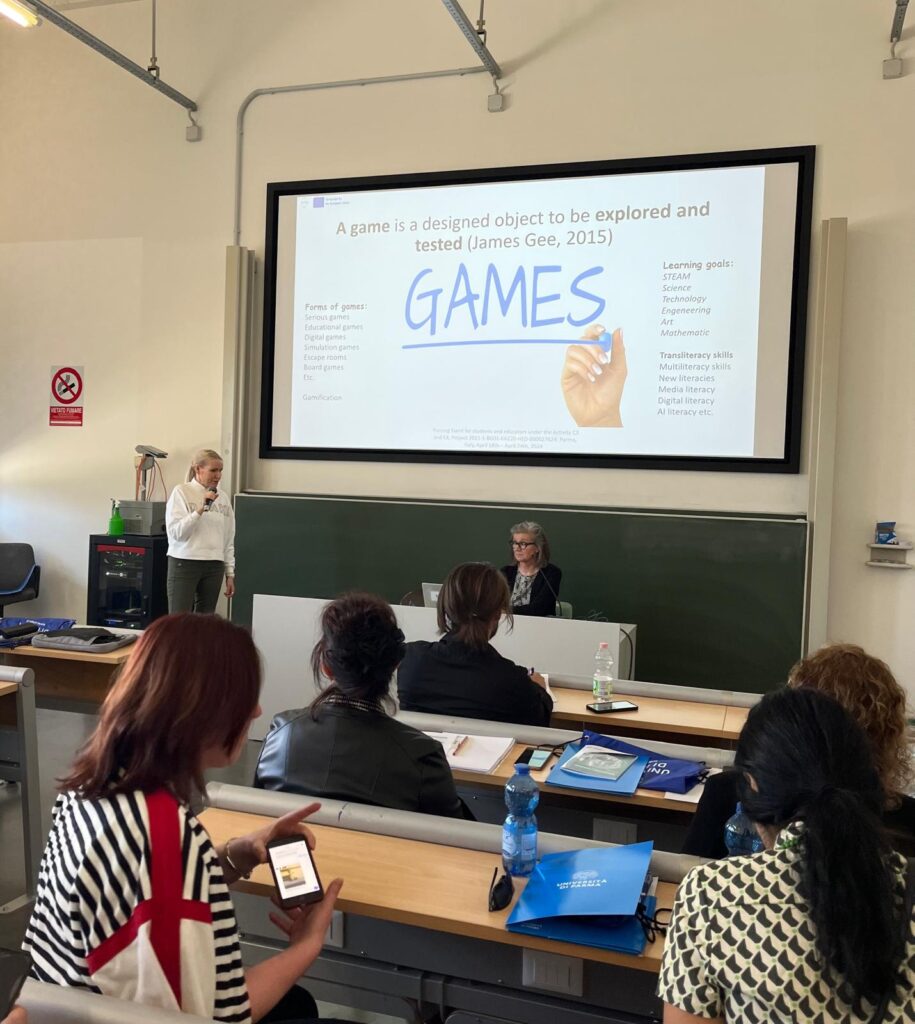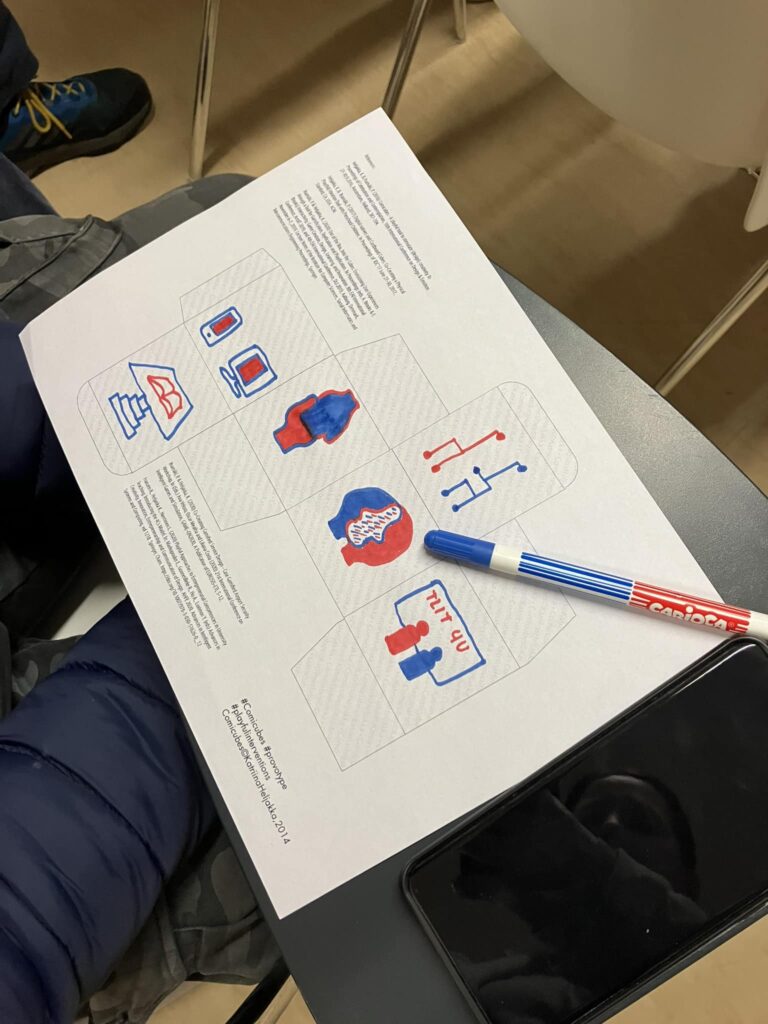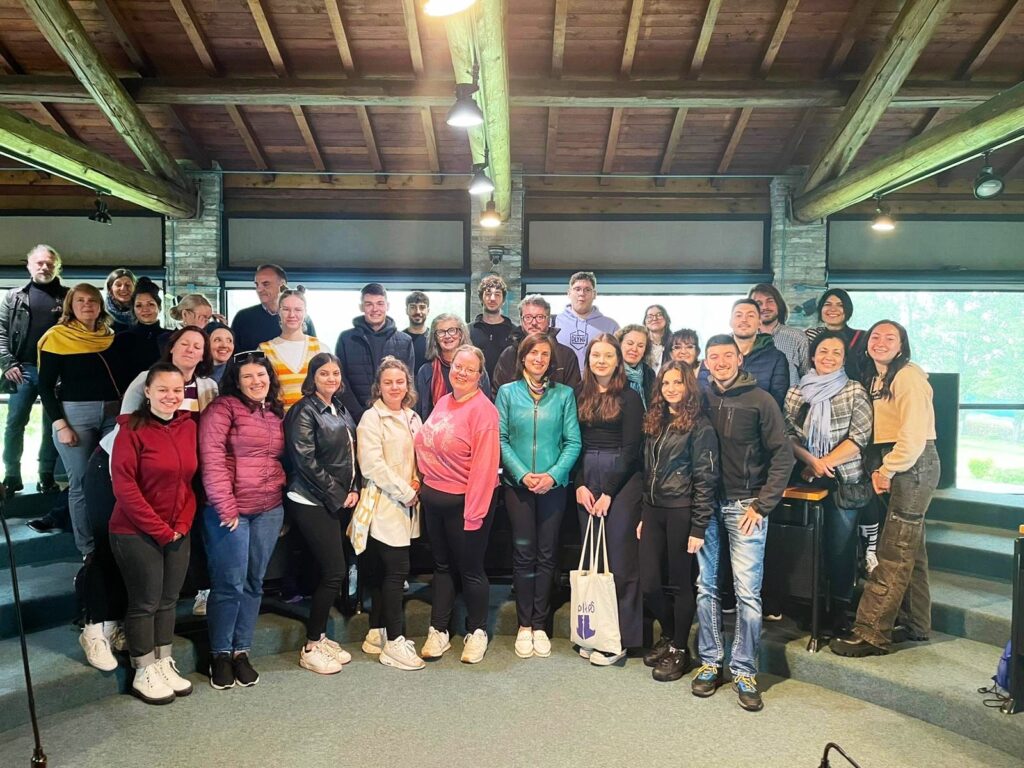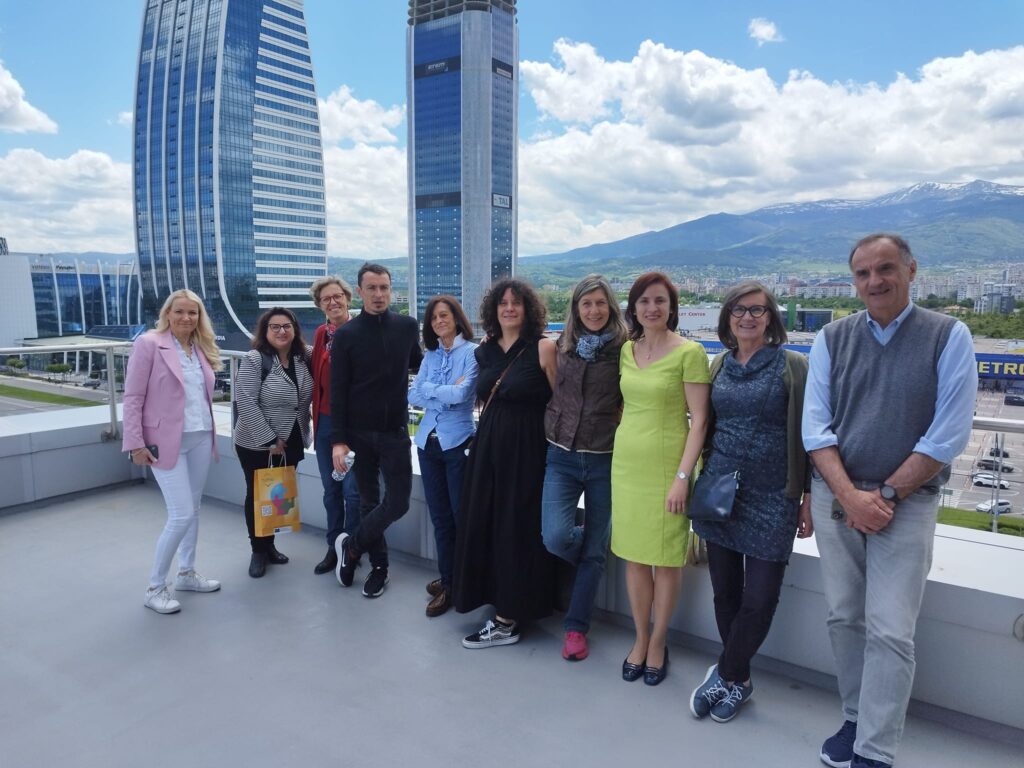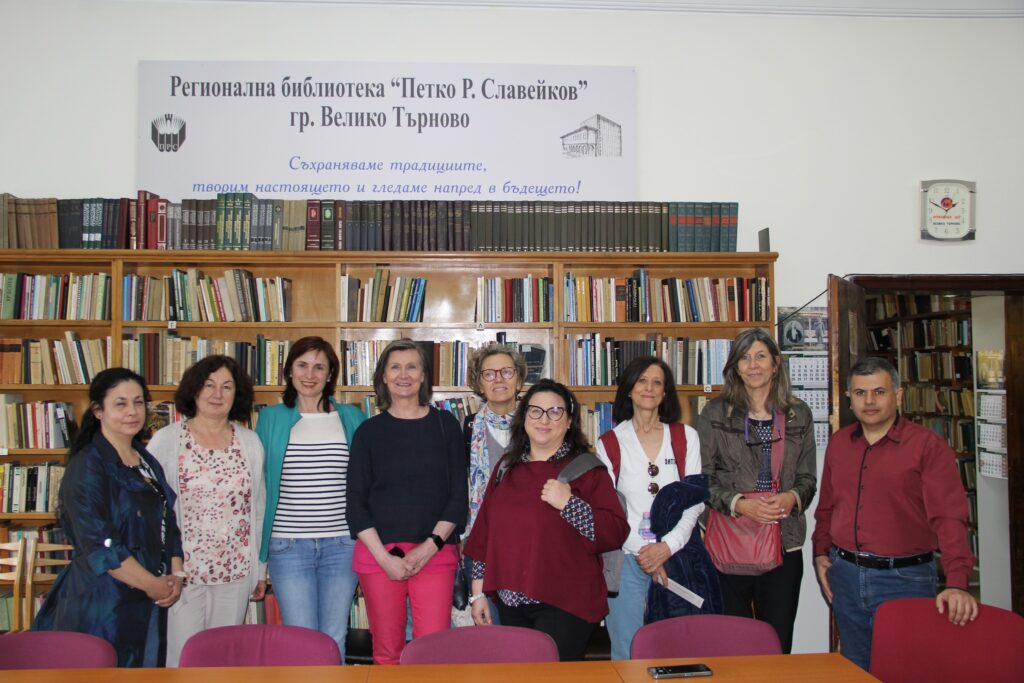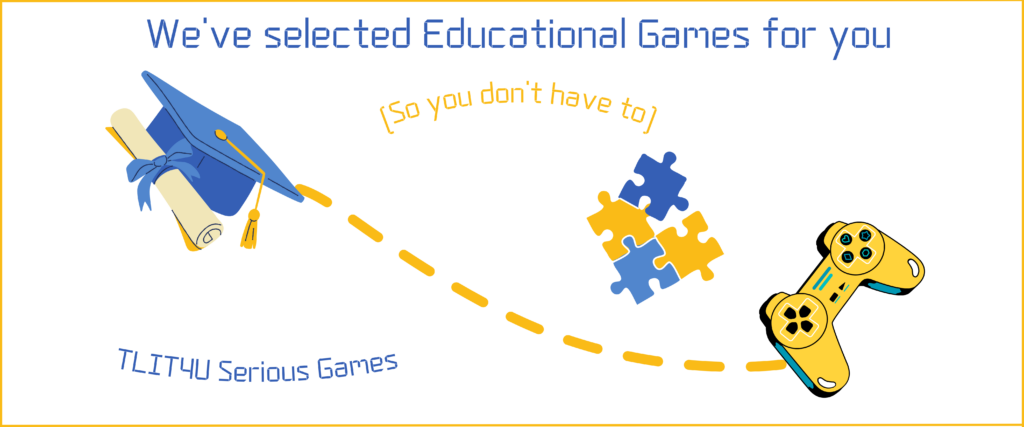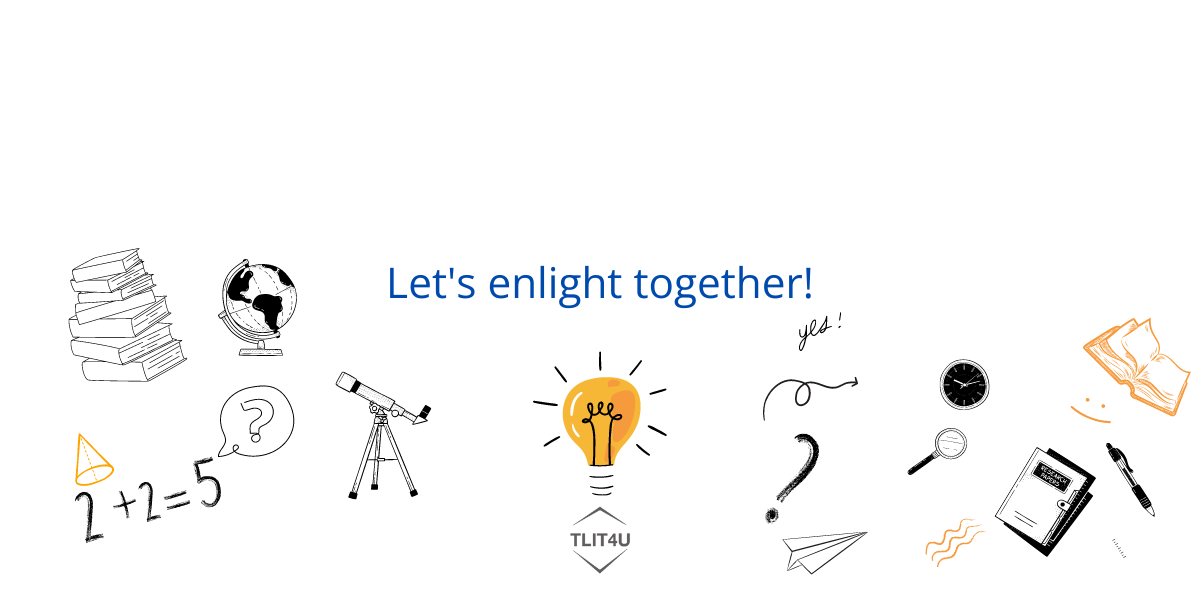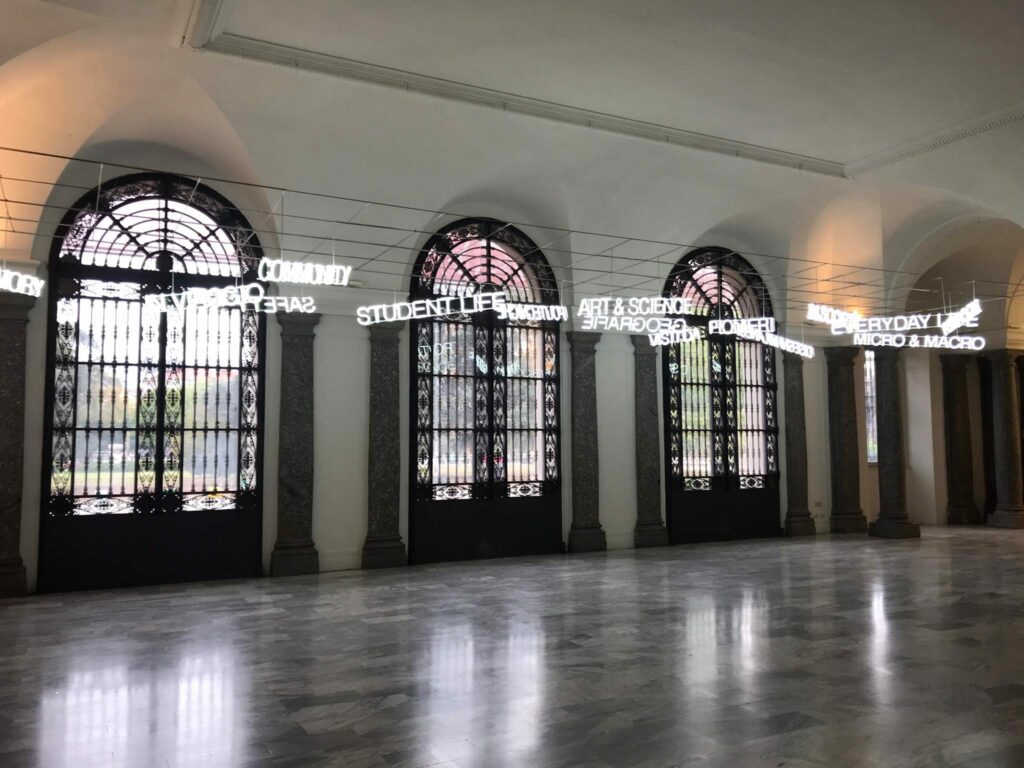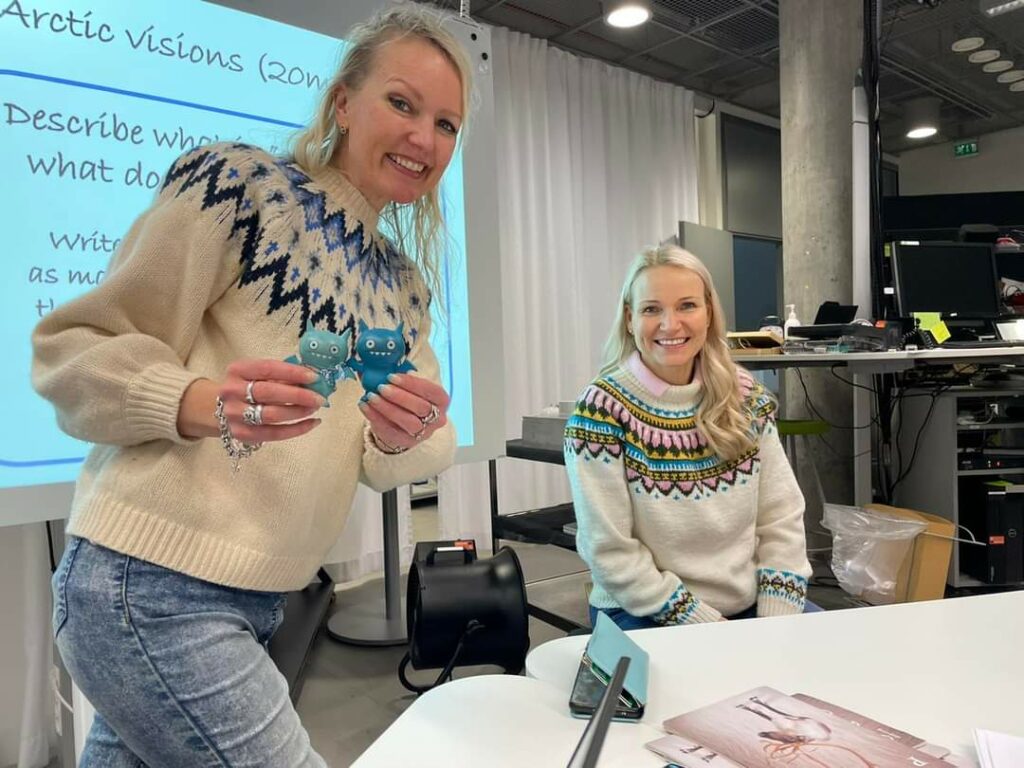ABOUT TLIT4U PROJECT
The European project Improving Transliteracy Skills through Serious Games – TLIT4U has been implemented since 2021 by three higher educational institutions (University of Library Studies and Information Technology – ULSIT, University of Parma, University of Lapland) and one non-governmental organization (Fondazione Politecnico di Milano – FPM) based in Bulgaria, Italy, and Finland. The project follows the European Union agenda to foster all types of literacy as a factor for the well-being and success of citizens in their active participation in the social, cultural, and public life striving for sustainable development. Henceforth, transliteracy needs to be established as a priority of educational institutions.
As most accessed institutions for European citizens, libraries are the natural partners of universities in this process. TLIT4U identifies serious games as the approach to engage students with transliteracy thus expanding the collaboration between teachers and librarians. Therefore, TLIT4U seeks foremostly a development of critical information skills by going beyond the traditional approach of information literacy as the ability to search textual and bibliographic sources and asserts the urgent necessity of teaching transliteracy.
Transliteracy involves skills, thinking, and actions that allow for overflow and interaction in a way that is predetermined by the situational, social, cultural, and technological context. This concept is based on the transfer of knowledge and skills to achieve in-depth learning and creativity, as well as to avoid fake content. The main components of transliteracy include critical thinking, creativity, ICT/digital skills, collaboration, and information skills (i.e. a combination of information, digital, media, data literacy, etc.), which are in the priorities of the EC, set in several strategic documents. Information and communication technologies are changing the way information interacts as a whole. It provides an integrative framework for the unification and convergence of familiar literacy. It also provides a framework for connecting rational-emotional, analytical-creative, and theoretical-practical ways of thinking and working.
AI methods include symbolic AI, machine learning, natural language processing, computer vision, and expert systems. Natural language processing enables machines to understand and generate human language, and computer vision analyzes visual data for perception and interpretation.
One emerging AI technology, ChatGPT, is a powerful language model developed by OpenAI. In higher education, it has the potential to provide personalized support, instant answers, explanations, virtual tutoring, and automated administrative tasks. However, it also presents challenges such as limitations, biases, transparency, and the impact on human interaction and critical thinking skills.
The ethical concerns of using AI in education include bias, privacy, human interaction, and academic transparency. The legal regulation of these issues is crucial to ensure the responsible and effective use of AI in education.
For more information about our Word of the Week: here
STEAM METHOD IN A NUTSHELL
STEAM
Manual for a work in progress in secondary schools
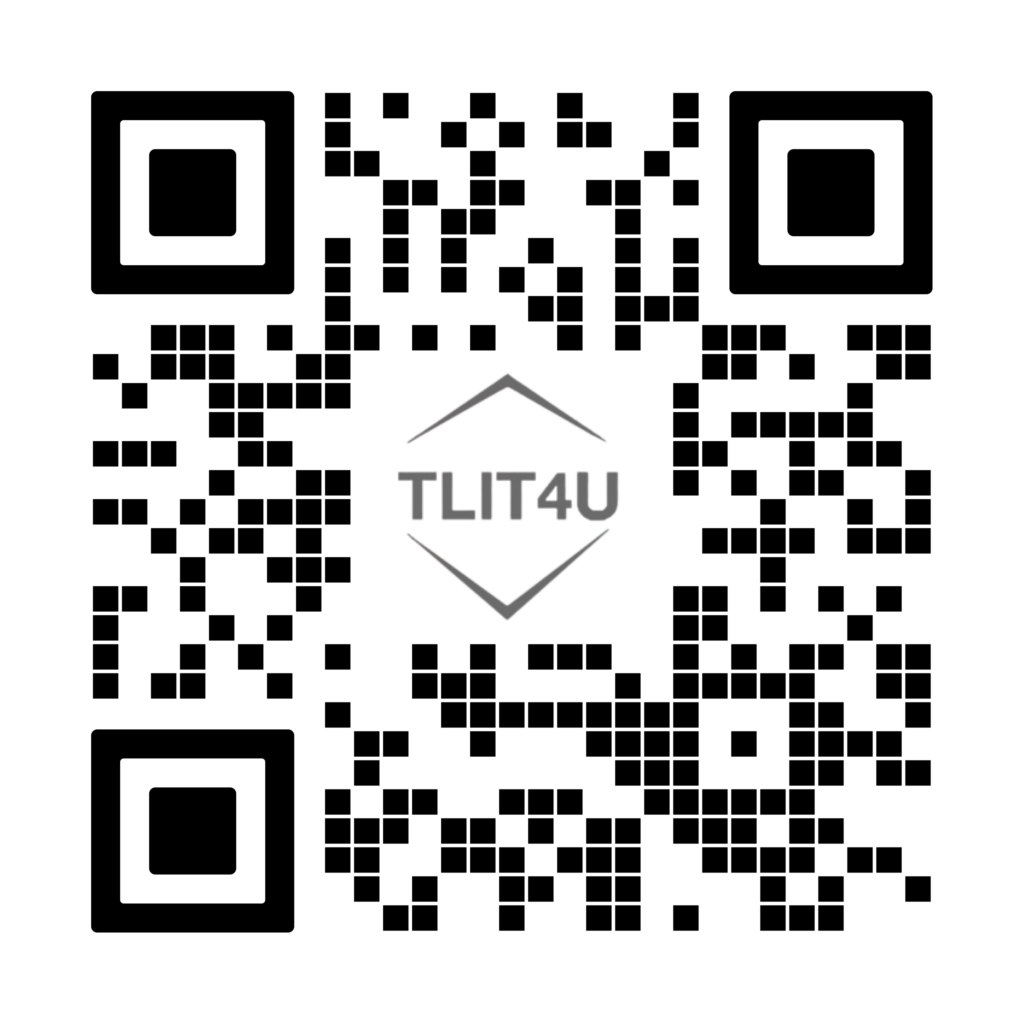
Brochures for our events and dissemination of the project results.
